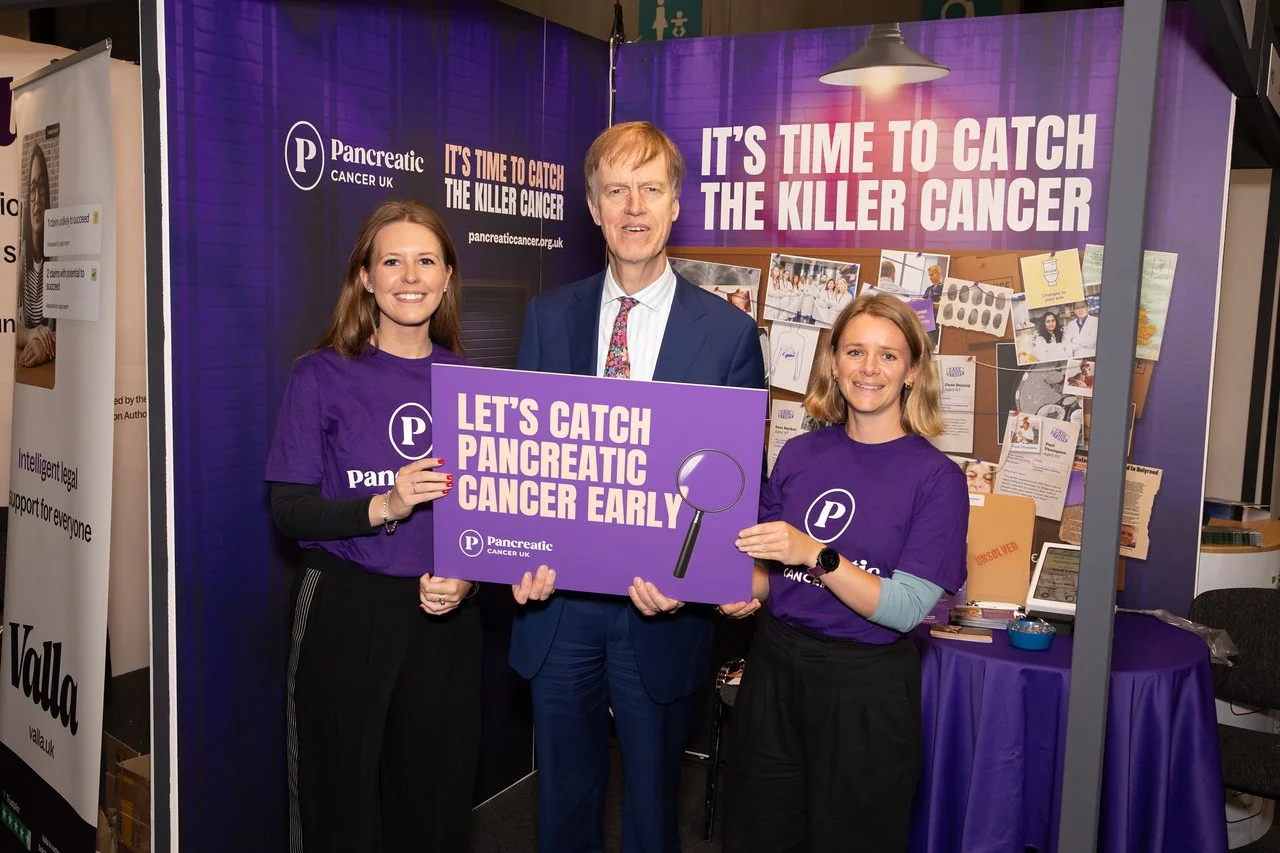Stephen has tried a new breath test for pancreatic cancer that could help save thousands of lives in the future - simply from people with suspicious symptoms blowing into a breathalyser-type device at their GP surgery.
Stephen met scientists from Imperial College London, who are developing the innovative technology, at a Labour Party Conference stall hosted by Pancreatic Cancer UK. The charity has invested £650,000 into the research study to help put what it hopes will be the first-ever early detection test for the disease into the hands of doctors.
Unlike many other cancers, no early detection tests for pancreatic cancer currently exist to help doctors determine who should be urgently referred to hospital for a scan. Yet 91 per cent of people with the disease see their GP with symptoms two years before diagnosis. The breath test could help save thousands of lives by helping to identify more people with the disease at early stage. To date, survival rates have barely improved in 50 years.
Stephen heard how the breath test, which is designed to be accurate, non-invasive, and usable in a GP surgery, could have a significant impact while remaining affordable for the NHS. Most importantly they learned about its potential to give many more people the chance of lifesaving or life-extending treatment. Currently just 10 per cent of people with the disease are diagnosed in time for surgery, the only potentially curative treatment.
The Pancreatic Cancer UK stand at the Labour Party Conference featured stories of families from across the UK who have lost loved ones to the disease. Around 10,500 people are diagnosed with pancreatic cancer each year. However, almost 60 per cent of people are currently diagnosed via an emergency (such as through visiting A&E), the highest proportion of any common cancer. One-year survival for patients diagnosed through a GP referral is three times higher.
Speaking afterwards, Stephen said: “This devastating disease is a silent killer. After learning about the stories of people affected by pancreatic cancer from right across the UK, I can well understand the anger and injustice so many families feel about the lack of progress.
“Advances in technology, like the breath test, could be game-changing. It’s incredibly important that we continue to support innovative projects like this, alongside investing in further research focused on pancreatic cancer. This disease poses unique challenges, but the significant improvements made in other types of cancer are proof of what’s possible.”
